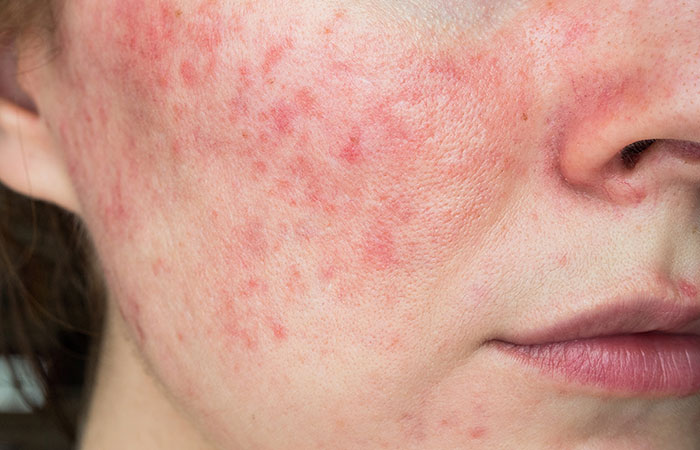
If the skin is little irritated, we assume that we have sensitive skin and do not take care of the skin accordingly and select products. But is it really so? Only irritation is it sensitive skin? How to confirm if your skin is sensitive? Let's know the details.
It may seem that your skin is red, itchy or breaking out due to certain products or environmental reactions. But there are certain medical conditions that can cause your skin to have similar problems. For example, due to rosacea, eczema or allergic dermatitis, but similar problems can occur on your skin, which you mistake for skin sensitivity! A skin specialist can tell you the best about your skin type, whether you have skin diseases, what steps can be taken to solve skin problems. But if you want to know or understand if your skin is really sensitive at home, then you need to pay attention to some things. Let's find out.
1. Is your skin reactive? If your skin is sensitive, you will notice that the skin reacts in certain cases. For example, contact with soapy products, fragrances used in creams or lotions, perfumes, certain ingredients in skincare products. In addition, the skin often reacts to direct sunlight and cold air. In this case, consult a dermatologist and follow the guidelines.
2. Does the skin look red? In the case of those whose skin is sensitive, it can be seen that redness or redness appears on the skin. It can look like a small red rash, it can be like a bump, and many people can see blood vessels or veins on the skin. In most cases, the redness goes away once the cause or the substance causing it is removed. After some time, the bumps and rash will reduce.
3. Does the skin itch? If you have sensitive skin, the skin feels tight and itchy. Especially after cleansing the face with a normal cleanser, it is more. And using hot water during cleansing makes this problem worse. Again exposure to cold air causes similar itching. Scratching with nails can lead to infection in all these places. So, if you have a problem of itching for a long time, consult a doctor immediately.
4. Burning or irritation on the skin? Irritation from using skincare products containing parabens, alcohol? This is very common in people with sensitive skin. Ingredients used in acne treatments can also cause temporary skin irritation. Sometimes using a new product can cause a temporary skin reaction or purging. But if that product does not suit you even after using it for more than a month, then assume that it is not the perfect option for you. It means that it is not working on your skin!
5) Does skin feel too dry? Sensitive skin tends to break out quickly, and many people think it's more common with oily skin. This is a misconception. In fact, breakouts can occur even if the skin becomes too dry. Sudden extreme dryness of the skin or appearance of dry patches can be called skin sensitivity.
6. Rash or allergies on skin? First find out what ingredient is triggering the sensitive skin. Along with redness, dryness, rash, many people may also have allergies. When adding new products to your skincare routine, check the ingredients carefully. When a product clogs new pores or aggravates acne from an allergic reaction, that's a breakout. Purging usually clears the skin within a month.
7. Whether excess amount of dead sales is accumulating This is another way to know if your skin is sensitive. Sensitive skin often looks rough and flaky. Too much dead cells tend to pile up on the top layer of the skin. Skin texture does not feel smooth. This type of skin has a chance of infection.
8. Getting sunburned too early If you have sensitive skin, you get tan easily. It can be seen that many people get itchiness on their skin when they go to the sun. So, if you have sensitive skin, use sunscreen above SPF 30 during the day. Applying sunscreen is a must for all skin types. Before buying any product, check its ingredient list to see if it contains any ingredients that may cause allergies to you.
What to do?
Established in 2013, FamilyNeeds.net is connected to your lifestyle and everyday life. Publish reviews of your life, style, fashion and essentials.